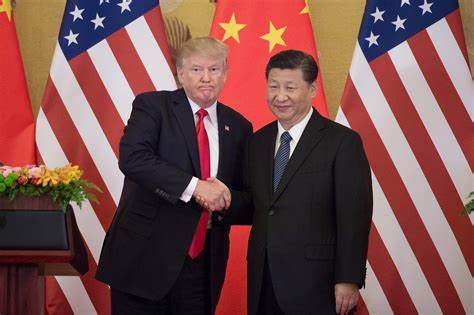by Temitope Oladeji
12/5/2025
The United States and China have temporarily agreed to significantly reduce reciprocal tariffs, marking a key effort towards de-escalating a prolonged trade war that has rattled global markets and pushed international trade relations to the limit.
Following high-level negotiations in Geneva, Switzerland, the United States Treasury Secretary Scott Bessent announced that both sides agreed to a 90-day pause on further tariff actions.
During the 90 days, existing tariffs will be reduced by more than 100 percentage points, bringing them down to 10%.
“Both countries have strongly represented their national interests,” Bessent stated at a press briefing alongside U.S. Trade Representative Jamieson Greer.
“We are united in achieving balanced trade, and the United States remains committed to that path.”
Secretary Bessent emphasized that both delegations shared a clear objective: avoiding economic decoupling between the two superpowers.
He said, “What we had with these exceptionally high tariffs was essentially an embargo. Neither side wants that. We want trade,”.
The Geneva meetings marked the first direct discussions between senior economic officials from Washington and Beijing since President Donald Trump returned to office and reignited his hardline tariff policy, targeting Chinese imports in particular.
Since taking office in January, President Trump has sharply increased tariffs on Chinese goods, pushing total levies to 145%, a figure that includes new measures as well as tariffs retained from his first term and those imposed under the Biden administration.
In response, China retaliated by restricting exports of critical rare earth elements vital to U.S. defense and tech industries and raising tariffs on American imports to 125%.
The standoff brought nearly $600 billion in bilateral trade to a virtual halt, disrupted supply chains, sparked stagflation concerns, and triggered layoffs in vulnerable industries.
The trade Markets have responded positively to the news of the new progress.
The United States stock market rose, and the dollar strengthened against traditional safe havens, reflecting renewed investor optimism that a global recession could be averted.
Chinese Vice Premier He Lifeng, speaking from China’s mission to the World Trade Organization, described the weekend’s discussions as “candid, in-depth, and constructive.”
He further added, “The talks yielded substantial progress and important consensus,” a statement met with applause from Chinese officials at the WTO.
This round of talks builds on a legacy of U.S.-China economic dialogue efforts, including the Economic Working Group established in 2023 by former U.S. Treasury Secretary Janet Yellen and Vice Premier He.
While these dialogues have helped to air mutual concerns between both countries, they have done little to shift Beijing’s export-led, state-controlled economic model towards one more reliant on domestic consumer spending, which is a key to the United States market demand.
The recent negotiations took place at a private villa in the Swiss lakeside suburb of Cologny, the residence of Switzerland’s ambassador to the UN.
The neutral location was chosen following diplomatic overtures by Swiss officials during recent visits to both countries.

